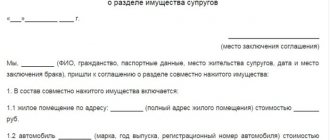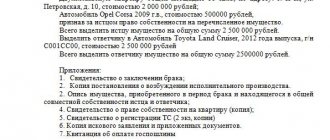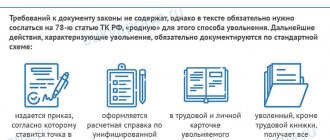An annuity contract is an agreement in accordance with which the annuity recipient transfers ownership of property to the annuity payer, who undertakes to pay him a certain amount.
There are many legal norms governing annuity relations. That is why it is one of the most complex areas of civil law. It is quite easy to enter into an annuity relationship, but sometimes ending it can be very difficult - the characteristics and term of the annuity agreement are important here. If such a problem arises, it is not always possible to solve it yourself. It is even more difficult to do this in court. At the same time, it is not enough to simply terminate the agreement; it is important to carry out this procedure with minimal financial losses.
When resolving complex issues relating to annuity relations, it is worth resorting to the services of a professional lawyer. He will analyze the current situation and give its legal assessment, calculate the risks, offer the client possible ways to solve the problem, help challenge the rental agreement, if necessary, prepare documents for filing a lawsuit and present the client’s position in court, monitor the execution of the court decision and provide other assistance legal assistance.
What is an annuity agreement?
According to Art. 583 of the Civil Code of the Russian Federation on the annuity agreement, one party (rent recipient) transfers ownership of property to the other party (rent payer), and the rent payer undertakes, in exchange for the received property, to periodically pay rent to the recipient in the form of a certain amount of money or the provision of funds for its maintenance in another form.
We discussed the issue of concluding an annuity agreement in the article “How to conclude an annuity agreement?” In this article we will consider issues related to the termination of an annuity agreement.
The annuity contract can be terminated based on the agreement of the parties or if there are grounds provided for by law. Termination of an annuity contract depends on the type of annuity contract.
For example, a life annuity contract can only be terminated by the annuity recipient if the annuity payer has materially violated the terms of the contract. A permanent annuity agreement can be terminated by both parties.
There is also the option to buy out the annuity without terminating the annuity contract. Thus, with a permanent annuity, both the annuity payer and the annuity recipient have the right to redeem, but with a lifelong annuity, only the annuity recipient has the right to redeem the annuity.
Thus, there are two ways to terminate the relationship between the annuity payer and the annuity recipient - this is to terminate the annuity contract or redeem the annuity. And for this, we offer you step-by-step instructions for terminating a rental agreement.
Offended by money
The decision of the Supreme Court, which considered one of the key disputes arising from the practice of applying a lifelong maintenance agreement, is a very useful thing not only for the participants in this particular dispute. So, in our case, the case was in the capital, and the Tverskoy District Court dealt with it. It was there that an elderly woman turned, demanding in court to terminate the life annuity agreement, which she herself had concluded with a certain citizen several years ago. Under the terms of this agreement, the pensioner transferred ownership of her three-room apartment to the citizen. The defendant, for his part, promised to keep the woman in this apartment for life, provide her with food, clothing, buy medicine if necessary, and pay for medical care.
The “apartment for care” agreement can be terminated if the person under care is not satisfied with how he is being cared for. Photo: Depositphotos
The total volume of such maintenance per month, as agreed by the parties, could not be less than one minimum wage. The elderly woman's claims were as follows. According to the plaintiff, he himself changed the terms of their agreement. And instead of taking care of her, buying her food or medicine, which the lawsuit called “maintenance in kind,” he converted the relationship into a monetary equivalent. Simply put, the citizen only transferred money to the woman’s account, but did not appear at her place. The plaintiff considered this a violation of the terms of the contract and demanded that the contract be terminated and the apartment returned to her.
The district court agreed with the pensioner and terminated the contract. The court recognized the elderly woman's ownership of her previous apartment. But the court also recovered a million rubles from the woman in favor of the defendant. That’s how much he paid for her home in 2006, when he signed the contract. The Moscow City Court, to which the defendant complained, overturned this decision and issued another one. He considered that the agreement was carried out normally and there were no violations. Then the plaintiff, in search of the truth, reached the Supreme Court. She asked that the district court's decision be upheld.
And the Supreme Court, after re-reading the arguments of both courts, agreed with the pensioner. He stated that it was the second instance that violated the law. This is how the Judicial Collegium for Civil Cases of the RF Armed Forces reasoned. At the request of the annuity recipient (Article 603 of the Civil Code), the provision of maintenance in kind can be replaced by monthly payments. According to Article 450 of the Civil Code, a contract, at the request of one of the parties, can be changed or terminated by a court decision, but only in two cases. Both involve serious breaches of the contract by the parties. Moreover, a violation that causes considerable damage to the other party is called significant.
According to the pensioner, the man who entered into an annuity agreement with her changed the terms
By the way, the Civil Code stipulates the right of a pensioner to demand the return of real estate. If this is not possible, then compensate it with money. But in the event of a divorce, the rent payer cannot demand compensation for the costs of maintaining the rent recipient. The district court was guided by all of the listed norms when meeting the plaintiff halfway.
But the court of second instance, when it ruled in favor of the defendant, stated the following. From the moment the contract was concluded until the moment she went to court, the pensioner never expressed a single claim against the defendant. And the contract itself provides for the possibility of replacing lifelong maintenance in kind with cash payments. Therefore, the judicial panel of the city court came to the conclusion that the defendant normally fulfilled the terms of the contract. What then did not suit the Supreme Court when it overturned the decision of the Moscow City Court?
It turns out that one of the clauses of the concluded agreement states that replacing maintenance in kind with money is indeed possible, but only “at the request of the annuity recipient.” The Moscow City Court did not take into account the lack of evidence that the pensioner had such a desire.
The Supreme Court reminded its colleagues that under the Civil Code, unilateral refusal to fulfill obligations and unilateral fulfillment of its terms are not allowed. There was no written agreement between the pensioner and the man on the complete replacement of maintenance in kind with cash payments. Therefore, the Supreme Court decided that it was necessary to uphold the decision of the Tverskoy District Court, which was in favor of the pensioner.
Termination of the rent agreement
Action 1. Determine the grounds for terminating the annuity agreement
As we have already said, in order to terminate the relationship between the parties to the annuity contract, it is necessary to either terminate the annuity contract or buy it out. There are reasons for each of these results.
So, in order to terminate the annuity agreement, the following conditions are necessary:
- the payer failed to fulfill his obligations to secure his obligations under the annuity contract or did not insure the risk of liability for failure to fulfill obligations under the contract. The annuity recipient also has the right to demand compensation for losses caused by termination of the contract (Article 587 of the Civil Code of the Russian Federation),
- a significant violation by the payer of the terms of the life annuity agreement. The recipient has the right to demand termination of the annuity agreement, compensation for losses, and if the property was transferred free of charge, then he may demand the return of the property with its value offset against the redemption price of the annuity (Article 599 of the Civil Code of the Russian Federation). Such termination of the contract is carried out in court.
- a significant violation of the payer’s obligations under a lifelong maintenance agreement with dependents. In this case, the annuity recipient does not compensate for the payer's expenses for maintaining the annuity recipient. The return of property is carried out in any case, that is, regardless of whether it was transferred to the payer free of charge or for a fee (Article 605 of the Civil Code of the Russian Federation).
What is meant by a material breach of obligations or terms of the contract?
In accordance with Art. 450 of the Civil Code of the Russian Federation, a significant violation of the contract is causing damage to the other party, such that it is largely deprived of what it had the right to count on when concluding the annuity contract.
For example, the payer’s failure to pay rent payments for a certain period of time, the payer’s unilateral change in its obligations - in exchange for caring for the annuity recipient, the payer pays a certain amount of money.
Action 2. Sending a proposal to the other party to terminate the contract or buy out the annuity
When you have established that you have every reason to terminate or buy out the annuity, you need to submit a written proposal. The payer of a permanent annuity must send a demand for redemption of the annuity three months before the termination of payment of annuity payments.
The redemption price is usually established by the parties to the contract. If the price is not determined, then it is equated to the amount of annuity transferred to the recipient during the last year. If the property was transferred free of charge, the redemption price, along with the annual amount of rental payments, includes the price of the transferred property (Article 594 of the Civil Code of the Russian Federation).
Action 3. Concluding an agreement to terminate the annuity contract (rent repurchase)
When concluding an agreement, it must be notarized. Unilateral or forced termination of a rent (buyout) agreement is possible only on the basis of a court decision.
If the other party refused to terminate the contract (buy out the annuity) or if you did not receive a response from it within the period specified in the offer or established in the contract, and in the absence of such, within 30 days, you have the right to go to court with a request to terminate the contract (redemption of rent) (clause 2 of article 452 of the Civil Code of the Russian Federation).
Action 4. File a claim in court
The claim must be filed with the district court. If the claim in the statement of claim is for the return of real estate transferred to the rent payer, then the statement of claim is filed with the district court at the location of the real estate.
The amount of the state duty is established by paragraph 1 of paragraph 1 of Art. 333.19 Tax Code of the Russian Federation:
- up to 20,000 rub. — 4% of the claim price, but not less than 400 rubles;
- from 20,001 rub. up to 100,000 rub. — 800 rub. plus 3% of the amount exceeding RUB 20,000;
- from 100,001 rub. up to 200,000 rub. — 3200 rub. plus 2% of the amount exceeding RUB 100,000;
- from 200,001 rub. up to 1,000,000 rub. — 5200 rub. plus 1% of the amount exceeding RUB 200,000;
- over 1,000,000 rub. — 13,200 rub. plus 0.5% of the amount exceeding RUB 1,000,000, but not more than RUB 60,000.
When filing a claim in court, you must collect the relevant documents and attach copies of them to the claim.
Such documents include:
- receipt for payment of state duty (original),
- copies of the claim to all participants in the case,
- annuity agreement,
- calculation of the amount to be collected,
- evidence of a significant breach of contract by the defendant,
- documents confirming the pre-trial procedure for resolving the dispute. For example, you sent a request to terminate the contract or an offer to buy out the rent, to which you received a response with a refusal,
- documents for property transferred for rent payment, etc.
Once the court has made a positive decision on your case, you need to move on to the next step.
Action 5. When returning property - registration in Rosreestr
After the parties to the rental agreement have entered into an agreement to terminate the rental agreement with the return of property , you need to contact the authorized body for state registration of real estate in your name.
To do this, you must submit an application for state registration, an agreement of the parties (court decision) and a receipt for payment of the state fee (2,000 rubles).
If you submit an application electronically through the Portal of State and Municipal Services, the state duty is based on a coefficient of 0.7.
The period for state registration is 7 working days from the date of receipt of documents by the authorized body, and through the MFC - 9 working days.
If registration is carried out on the basis of notarized documents (agreement on termination of the annuity contract), its period is 3 working days, if documents are received in electronic form - 1 working day, when applying through the MFC - 5 working days
After state registration, to confirm this, the real estate is certified by an extract from the Unified State Register of Real Estate, which can be sent to you in electronic form.
Section IV. Certain types of obligations
Chapter 33. Rent and lifelong maintenance with dependents
§ 1. General provisions on annuity and lifelong maintenance with dependents
Article 583. Rent agreement
1. Under a rent agreement, one party (rent recipient) transfers ownership of property to the other party (rent payer), and the rent payer undertakes, in exchange for the received property, to periodically pay rent to the recipient in the form of a certain amount of money or the provision of funds for its maintenance in another form.
2. Under an annuity agreement, it is possible to establish the obligation to pay annuity indefinitely (permanent annuity) or for the life of the annuity recipient (lifetime annuity). Lifetime annuity can be established on the terms of lifelong maintenance of a citizen with a dependent.
Article 584. Form of rent agreement
A rent agreement is subject to notarization, and an agreement providing for the alienation of real estate for the payment of rent is also subject to state registration.
Article 585. Alienation of property for payment of rent
1. Property that is alienated for the payment of rent may be transferred by the recipient of the rent into the ownership of the rent payer for a fee or free of charge.
2. In the case when the annuity agreement provides for the transfer of property for a fee, the rules on purchase and sale (Chapter 30) are applied to the relations of the parties regarding the transfer and payment (Chapter 30), and in the case when such property is transferred free of charge, the rules on the gift agreement (Chapter 32) insofar as otherwise is not established by the rules of this chapter and does not contradict the essence of the annuity agreement.
Article 586. Encumbrance of rent on real estate
1. Rent encumbers the land plot, enterprise, building, structure or other real estate transferred for its payment. In the event of alienation of such property by the rent payer, its obligations under the rent agreement are transferred to the acquirer of the property.
2. A person who has transferred real estate encumbered with rent into the ownership of another person shall bear subsidiary liability with him (Article 399) for the claims of the rent recipient arising in connection with a violation of the rent agreement, unless this Code, another law or agreement provides for joint and several liability for this obligation.
Article 587. Security for payment of rent
1. When transferring a plot of land or other real estate for payment of rent, the recipient of the rent, as security for the obligation of the rent payer, acquires the right of pledge over this property.
2. An essential condition of an agreement providing for the transfer of a sum of money or other movable property against the payment of rent is a condition establishing the obligation of the rent payer to provide security for the fulfillment of his obligations (Article 329) or to insure in favor of the annuity recipient the risk of liability for non-fulfillment or improper fulfillment of these obligations.
3. If the annuity payer fails to fulfill the obligations provided for in paragraph 2 of this article, as well as in the event of loss of security or deterioration of its conditions due to circumstances for which the annuity recipient is not responsible, the annuity recipient has the right to terminate the annuity contract and demand compensation for losses caused by termination of the contract.
Article 588. Liability for late payment of rent
For late payment of rent, the rent payer shall pay the rent recipient the interest provided for in Article 395 of this Code, unless a different amount of interest is established by the rent agreement.
§ 2. Constant rent
Article 589. Recipient of permanent annuity
1. Recipients of permanent annuity can only be citizens, as well as non-profit organizations, if this does not contradict the law and corresponds to the goals of their activities.
2. The rights of the annuity recipient under a permanent annuity agreement may be transferred to the persons specified in paragraph 1 of this article by assigning a claim and transferred by inheritance or by succession during the reorganization of legal entities, unless otherwise provided by law or agreement.
Article 590. Form and amount of permanent annuity
1. Permanent annuity is paid in money in the amount established by the contract.
A permanent annuity agreement may provide for the payment of annuity by providing things, performing work or providing services corresponding in value to the monetary amount of the annuity.
2. The amount of the permanent annuity paid, established by the permanent annuity contract, per month must be no less than the minimum subsistence level per capita established in accordance with the law in the relevant constituent entity of the Russian Federation at the location of the property that is the subject of the permanent annuity contract, and in the absence in the corresponding subject of the Russian Federation, the specified value is not less than the minimum subsistence level per capita established in accordance with the law for the Russian Federation as a whole.
The amount of permanent annuity established by a permanent annuity contract at the level of the per capita subsistence minimum specified in paragraph one of this paragraph is subject to increase taking into account the increase in the corresponding per capita subsistence minimum.
Article 591. Terms for payment of permanent annuity
Unless otherwise provided by the permanent annuity agreement, permanent annuity is paid at the end of each calendar quarter.
Article 592. The right of the payer to repurchase permanent annuity
1. The payer of a permanent annuity has the right to refuse further payment of annuity by repurchasing it.
2. Such a refusal is valid provided that it is declared by the annuity payer in writing no later than three months before the termination of annuity payment or for a longer period provided for in the permanent annuity agreement. In this case, the obligation to pay rent does not terminate until the entire redemption amount is received by the annuity recipient, unless a different procedure for redemption is provided for in the contract.
3. The condition of the permanent annuity agreement regarding the refusal of the permanent annuity payer from the right to repurchase it is void.
The contract may provide that the right to repurchase a permanent annuity cannot be exercised during the life of the annuity recipient or for another period not exceeding thirty years from the date of conclusion of the contract.
Article 593. Redemption of permanent annuity at the request of the annuity recipient
The recipient of a permanent annuity has the right to demand redemption of the annuity by the payer in cases where:
the annuity payer is overdue for payment by more than one year, unless otherwise provided by the permanent annuity agreement;
the rent payer violated his obligations to ensure the payment of rent (Article 587);
the rent payer has been declared insolvent or other circumstances have arisen that clearly indicate that the rent will not be paid to him in the amount and within the terms established by the agreement;
real estate transferred for payment of rent came into common ownership or was divided between several persons;
in other cases provided for by the contract.
Article 594. Redemption price of permanent annuity
1. The redemption of a permanent annuity in the cases provided for in Articles 592 and 593 of this Code is made at the price determined by the permanent annuity agreement.
2. In the absence of a condition on the redemption price in the permanent annuity agreement, under which the property is transferred for a fee for the payment of a constant annuity, the redemption is carried out at a price corresponding to the annual amount of annuity payable.
3. In the absence of a condition on the redemption price in a permanent annuity agreement, under which the property is transferred for payment of rent free of charge, the redemption price, along with the annual amount of rent payments, includes the price of the transferred property, determined according to the rules provided for in paragraph 3 of Article 424 of this Code.
Article 595. Risk of accidental destruction of property transferred for payment of permanent annuity
1. The risk of accidental loss or accidental damage to property transferred free of charge for the payment of permanent rent is borne by the rent payer.
2. In the event of accidental destruction or accidental damage to property transferred for payment for the payment of permanent annuity, the payer has the right to demand, accordingly, termination of the obligation to pay annuity or change the terms of its payment.
§ 3. Lifetime annuity
Article 596. Recipient of life annuity
1. Lifetime annuity can be established for the life of the citizen transferring property for payment of annuity, or for the life of another citizen specified by him.
2. It is allowed to establish a life annuity in favor of several citizens, whose shares in the right to receive annuity are considered equal, unless otherwise provided by the life annuity agreement.
In the event of the death of one of the annuity recipients, his share in the right to receive annuity passes to the surviving annuity recipients, unless otherwise provided by the life annuity agreement, and in the event of the death of the last annuity recipient, the obligation to pay the annuity is terminated.
3. An agreement establishing a life annuity in favor of a citizen who has died at the time of conclusion of the agreement is void.
Article 597. Amount of life annuity
1. Lifetime annuity is defined in the contract as a sum of money periodically paid to the annuity recipient during his life.
2. The amount of life annuity established by a life annuity agreement providing for the alienation of property free of charge, per month, must be no less than the minimum subsistence level per capita established in accordance with the law in the relevant constituent entity of the Russian Federation at the location of the property that is the subject of the life annuity agreement , and in the absence of the specified value in the corresponding subject of the Russian Federation, not less than the minimum subsistence level per capita established in accordance with the law for the Russian Federation as a whole.
The amount of the life annuity established by the life annuity agreement at the level of the per capita subsistence level specified in paragraph one of this paragraph is subject to increase taking into account the increase in the corresponding per capita subsistence level.
Article 598. Terms of payment of life annuity
Unless otherwise provided in the life annuity agreement, the life annuity is paid at the end of each calendar month.
Article 599. Termination of a life annuity contract at the request of the annuity recipient
1. In the event of a significant violation of the life annuity agreement by the annuity payer, the annuity recipient has the right to demand from the annuity payer the redemption of the annuity on the terms provided for in Article 594 of this Code, or termination of the agreement and compensation for losses.
2. If an apartment, residential building or other property is alienated free of charge for the payment of a lifelong annuity, the annuity recipient has the right, in the event of a significant violation of the contract by the annuity payer, to demand the return of this property with its value offset against the redemption price of the annuity.
Article 600. Risk of accidental destruction of property transferred for payment of life annuity
Accidental destruction or accidental damage to property transferred for the payment of a life annuity does not relieve the annuity payer from the obligation to pay it on the terms provided for in the life annuity agreement.
§ 4. Lifetime maintenance with dependents
Article 601. Lifetime maintenance agreement with dependents
1. Under an agreement of lifelong maintenance with a dependent, the annuity recipient—a citizen—transfers a residential house, apartment, land plot or other real estate belonging to him into the ownership of the rent payer, who undertakes to provide lifelong maintenance with the dependent of the citizen and (or) a third party (persons) indicated by him.
2. The rules on life annuity apply to a lifelong maintenance agreement with a dependent, unless otherwise provided by the rules of this paragraph.
Article 602. Obligation to provide maintenance for dependents
1. The obligation of the rent payer to provide dependent maintenance may include providing for the needs for housing, food and clothing, and if the citizen’s health requires this, also caring for him. A lifelong maintenance agreement with dependents may also provide for payment by the annuity payer for funeral services.
2. The contract for lifelong maintenance with dependents must determine the cost of the entire amount of maintenance with dependents. At the same time, the cost of the total amount of maintenance per month under a lifelong maintenance agreement with dependents, which provides for the alienation of property free of charge, cannot be less than two values of the subsistence level per capita established in accordance with the law in the corresponding constituent entity of the Russian Federation at the location of the property that is the subject of the lifelong maintenance agreement maintenance with dependents, and in the absence of the specified value in the relevant subject of the Russian Federation, at least two values of the subsistence minimum per capita established in accordance with the law for the Russian Federation as a whole.
3. When resolving a dispute between the parties about the amount of content that is provided or should be provided to a citizen, the court must be guided by the principles of good faith and reasonableness.
Article 603. Replacement of lifelong maintenance with periodic payments
An agreement on lifelong maintenance with dependents may provide for the possibility of replacing the provision of maintenance with dependents in kind by payment of periodic payments in money during the life of the citizen.
Article 604. Alienation and use of property transferred to ensure lifelong maintenance
The annuity payer has the right to alienate, pledge or otherwise encumber real estate transferred to him to ensure lifelong maintenance, only with the prior consent of the annuity recipient.
The annuity payer is obliged to take the necessary measures to ensure that during the period of provision of lifelong maintenance with a dependent, the use of the specified property does not lead to a decrease in the value of this property.
Redemption of rent
Above we looked at what grounds there should be for terminating an annuity contract, and now we will consider the grounds for repurchasing the annuity.
These should be:
- the rent payer is overdue for payment by more than a year;
- the rent payer violated its obligations to ensure payment of rent;
- the rent payer is declared insolvent;
- real estate transferred for the payment of rent came into common ownership or was divided between several persons.
The parties may establish other grounds for termination of the annuity agreement .
The payer of a permanent annuity has the right to buy it out and stop paying it. But this is only possible if the following conditions are met.
Refusal to pay annuity must be in writing and upon notification to the recipient three months before termination of annuity payment.
In this case, the obligation to pay annuity does not terminate until the annuity recipient receives the redemption amount. The condition in the agreement on the payer’s refusal to buy out the rent is void (Article 592 of the Civil Code of the Russian Federation).









